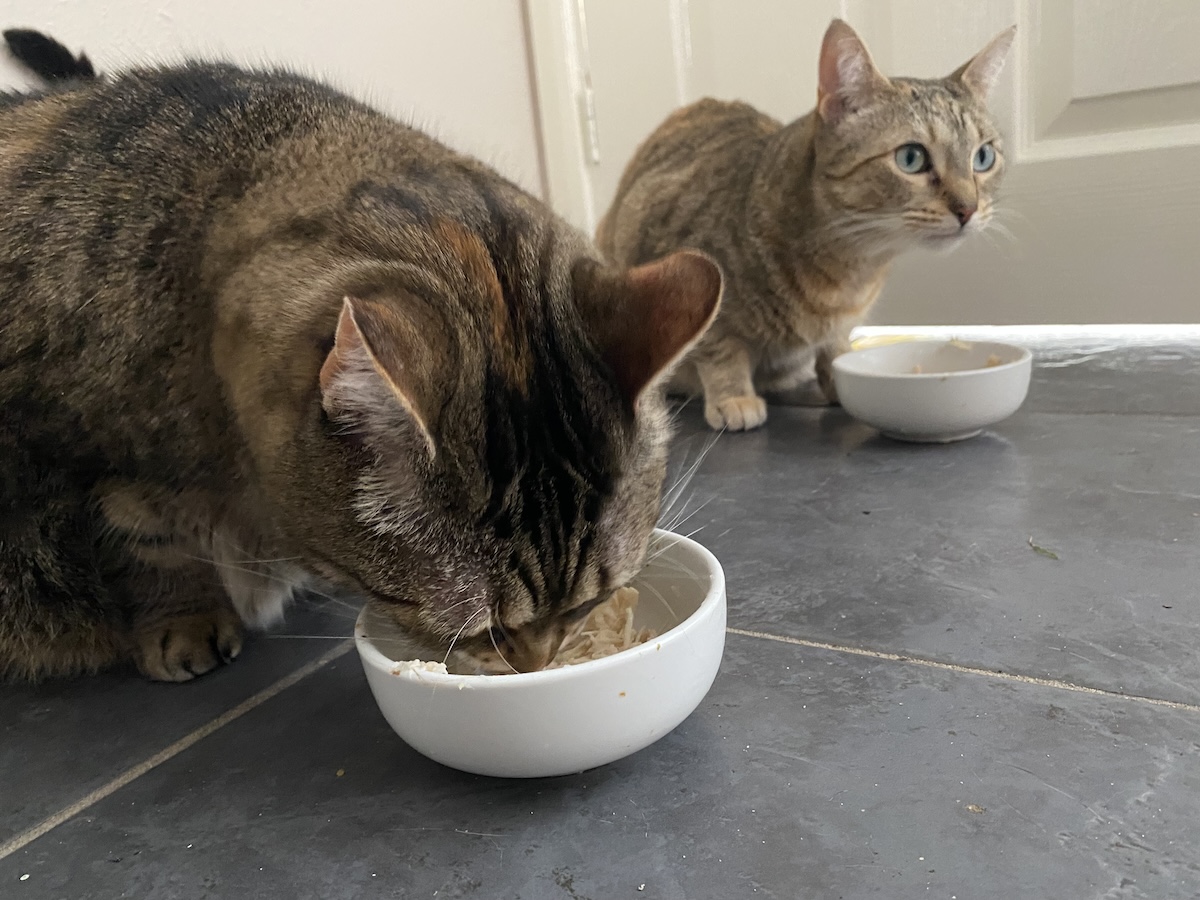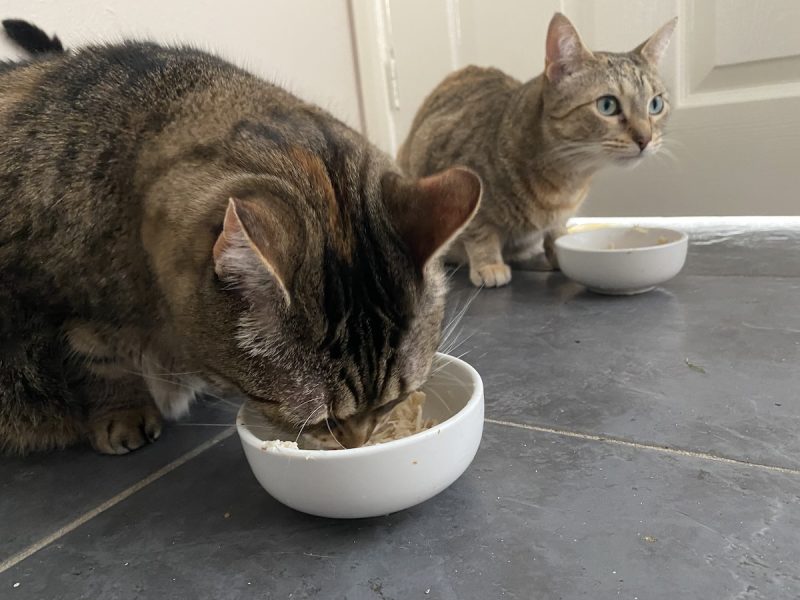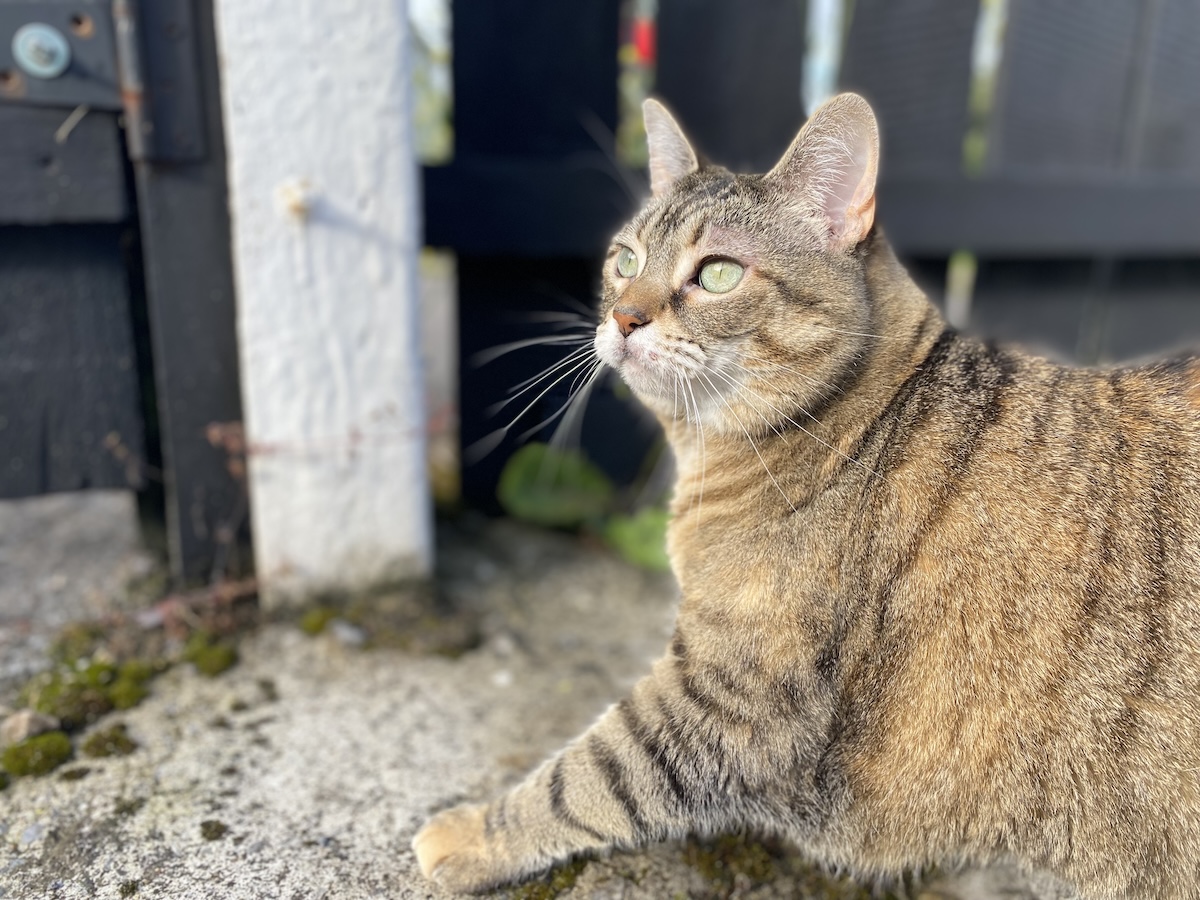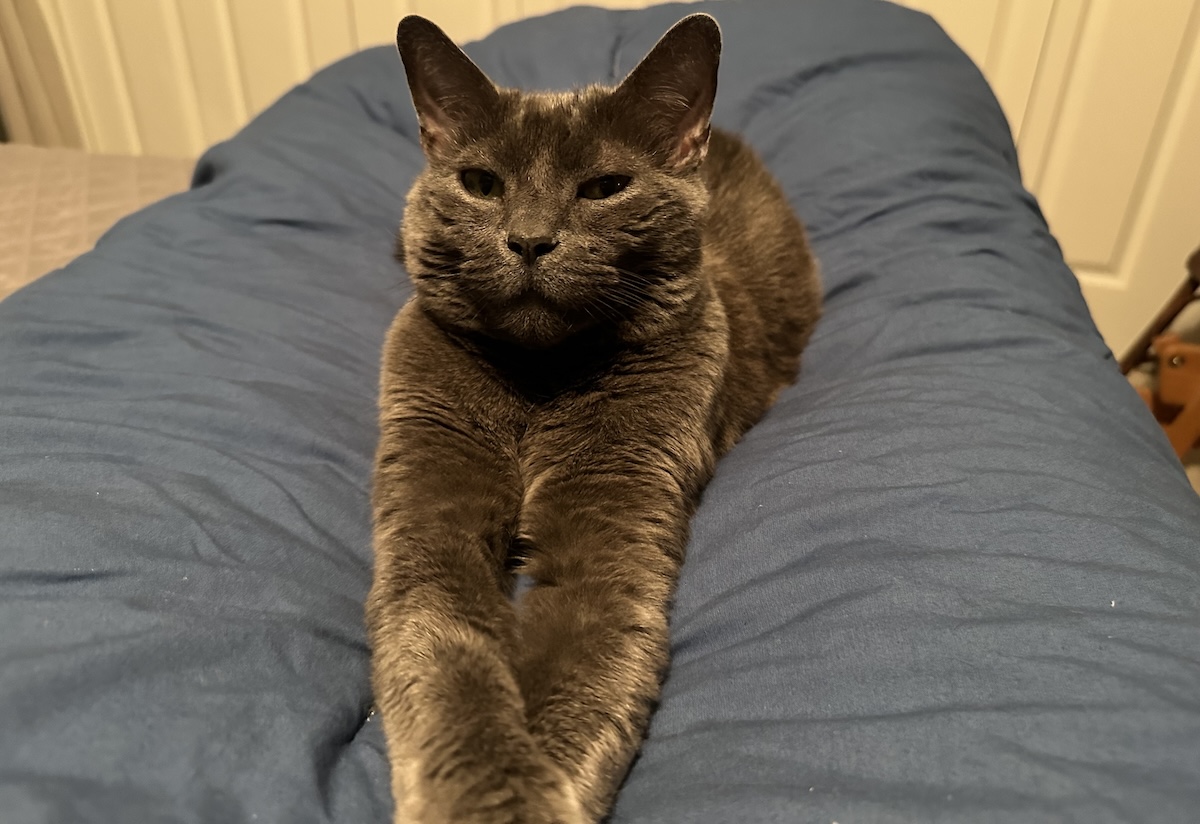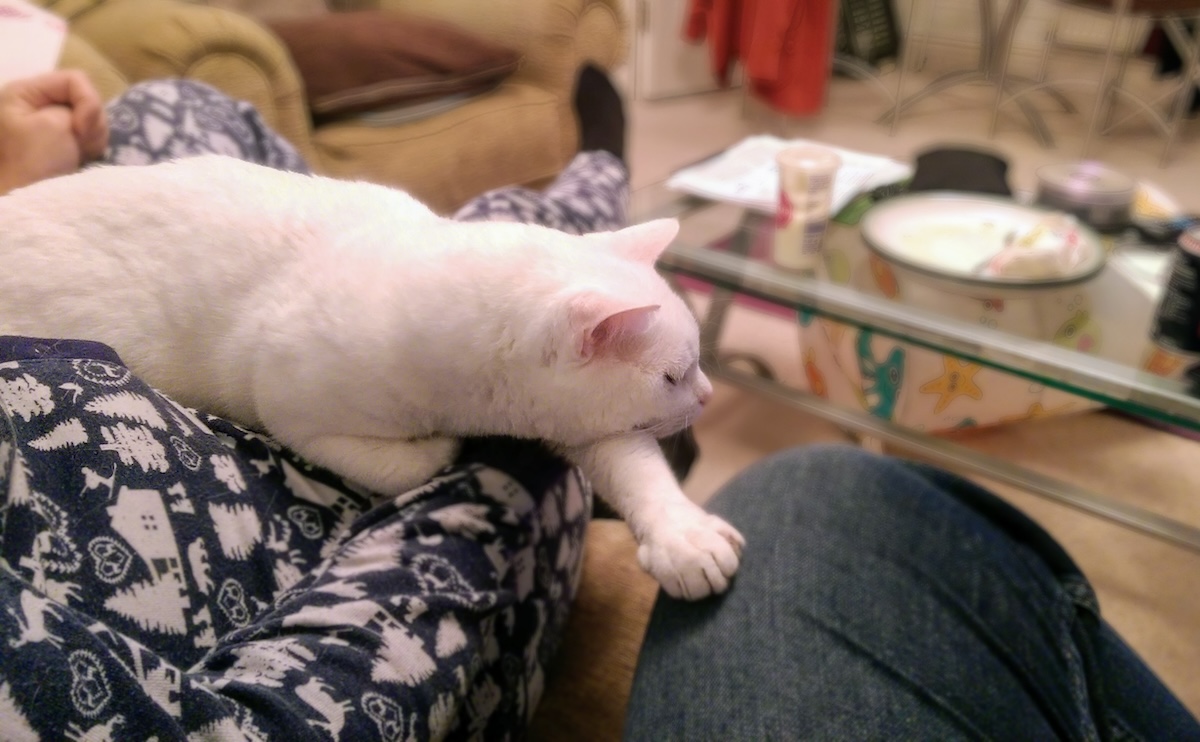Hi, I’m Dr. Lauren! Read my introduction to learn more about me and my two adventurous cats, Pancake and Tiller.
Pancake may be the queen of eating, but that’s generally always been the case. Cheese, roast chicken, dry food, treats, wet food, you name it. She’s not as bad as some cats I’ve met in my years of feline veterinary work- such as those who steal entire cucumbers or chow loaves of bread from the counter. I’ve even written about one of my favorites in a prior article, who was known to literally cat burgle the neighborhood, stealing bags of instant rice or even slices of pizza from the neighbors (much to the dismay of the husband that got the blame for losing the rice!)
However, be warned that being a good eater, or having a hearty appetite in a cat, isn’t always a normal thing. Let me explain.
Grazers vs Scarfers
Cats often seem to have developed eating preferences early in life. I tend to see two main types: grazers, and scarfers. Grazers are those that will pick at a bowl of food throughout the day; scarfers are the Pancakes- happy to eat any and everything you offer (and to steal it even when you don’t!).
Normally, these appetites don’t tend to change much throughout their life. A grazer doesn’t generally become a scarfer, and vice versa. And this is a key piece of information for any cat owner to know.
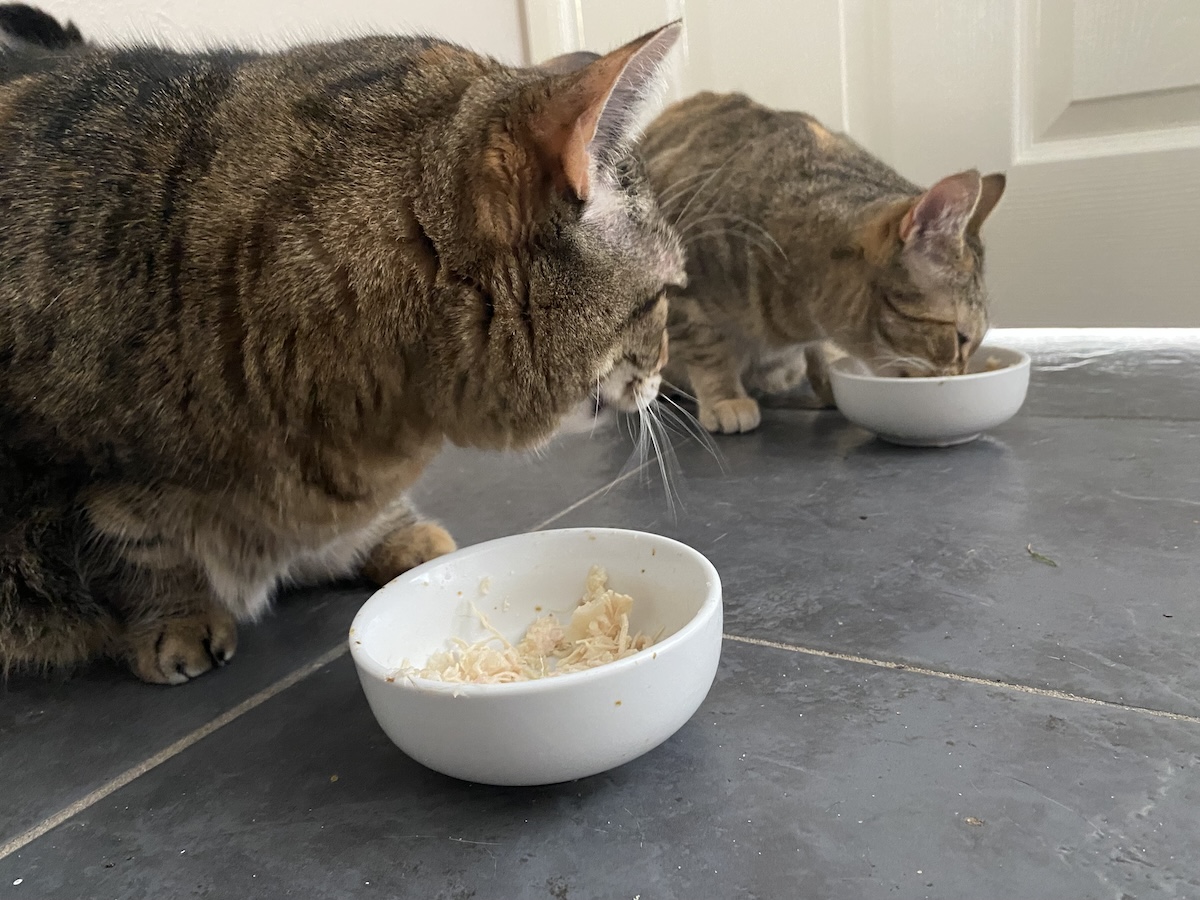
Changes In Your Cat’s Appetite
One of the most frequent questions I ask when taking histories from clients, is how their cat’s appetite is. This is even more important in older cats. I want them to characterize the appetite, and often try to go into detail on the specifics. In turn, I expect people to respond with: it’s good, and maybe share some of the current eating habits of their cat. When they eat, how much, have they been eating the same food for a long time, etc.
What really piques my interest, however, is when an owner says something like, “He’s a great eater! There’s nothing wrong with him! Yesterday, he tried to steal the food off my plate, and that was after two extra cans of food for dinner the night before!”
You see, many diseases in cats can lead to changes in a cat’s appetite. However, what many people don’t know is that disease can cause both a decrease, or an increase in a cat’s appetite. Instead, most people tend to think of disease only leading to a drop in appetite, and poor eating, or becoming very picky about food.
Conversely, various diseases can also lead to the false observation that a cat has a good appetite, or is eating really well. In these instances, the disease is driving the appearance of a good appetite, but in reality, it can be extremely unhealthy for the cat.
Conditions That May Cause Increased Appetite in Cats
Examples of diseases that can cause increased appetites in cats:
- Hyperthyroidism
- Diabetes mellitus
- Gastrointestinal parasites
- Iron deficiency (commonly seen as pica, or the eating of inappropriate objects, commonly clay litter)
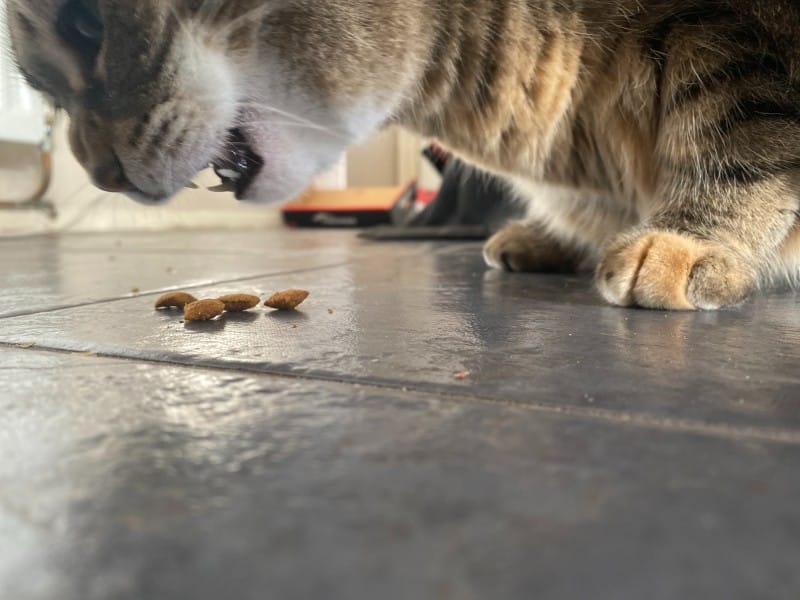
What To Do If Your Cat’s Appetite Suddenly Increases
If you do see an increased appetite in a cat, the steps to take include the following:
- Contact your vet, and schedule an appointment. Beforehand, try to document the brand and flavors of foods that your cat is eating, as well as the amount that they eat on any given day. Include treats, as well, in this assessment.
- If you have an accurate scale at home (e.g., a human baby scale), consider weighing your cat, and comparing this to their prior weights. This can help indicate if weight loss is present, as many diseases that cause polyphagia (increased appetite) also cause weight loss. If your cat has lost a significant amount of weight, this can add urgency to how quickly you want your cat to be seen.
In the end, it’s always desirable for your cat to have a healthy appetite, but don’t rely on a suddenly great appetite to equate to a necessarily healthy one. Pancake would concur, but I’m pretty sure she’s either eating her fourth meal of the day, or sleeping it off!

